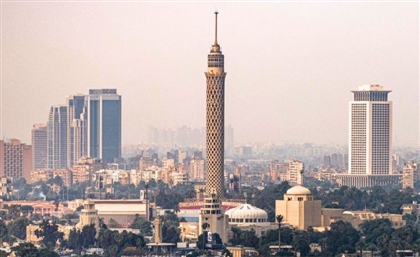IFC: COVID-19 is Shifting Our Thinking About Mental Health in Egypt, Particularly in the Workplace
The International Finance Corporation's Gender and Private Sector Lead in MENA, Sammar Essmat, writes about the mental health factor of the pandemic and how the IFC is hoping to make a difference, exclusively for Startup Scene.

The COVID-19 pandemic has not only cost lives and disrupted the global economy, it has created unprecedented levels of physical, mental and financial anxiety and stress, which have placed a strain on Egypt’s economy.
According to the World Health Organization (WHO), depression and anxiety cost the global economy an estimated $1 trillion a year in lost productivity. Countries like Egypt, which have close family and community ties, have been especially impacted. Many Egyptians have found themselves socially isolated by the lockdown, often for the first time. Many more are stressed by the volatility in their job or income situation or have lost their livelihoods altogether.
Working women have been especially hard-hit, with school closures adding to their domestic care burden. Many are on the frontlines of the COVID-19 pandemic, working in supermarkets and healthcare, often without childcare options and exposed to health risks.
For every $1 put into scaled-up treatment for common mental health disorders, there is a return of $4 in improved health and productivity.
To assess the impact of the pandemic and how well companies and workforces in Egypt were coping, IFC’s Gender team conducted a phone survey with six companies from various industries such as healthcare, food manufacturing and textile production. The survey revealed that companies recognized the deteriorating well-being and mental health of their employees as critical concerns and have seen direct links to productivity.
Despite knowing the problem, most of the companies were not sure how to address the issue and how best to provide their staff with support. In Egypt, mental health challenges remain a highly private issue, especially for men. Few people feel comfortable speaking about the subject, especially in the workplace. This is where the COVID-19 pandemic, despite the havoc it has caused, has opened a door and created an opportunity. For the first time ever, the Egyptian business community is taking a serious interest in the mental health of their employees and trying to define a role for employers in supporting employees’ mental well-being. According to the WHO, for every $1 put into scaled-up treatment for common mental health disorders, there is a return of $4 in improved health and productivity. Egyptian companies are taking note of this and are taking steps to address mental health challenges amongst their staff.
To address the need for better knowledge and awareness on the topic, IFC is teaming up with the American Chamber of Commerce to deliver a series of webinars on workplace challenges and the needs of Egyptian companies during the COVID-19 crisis. More than 100 participants from various companies attended the first webinar in June, which focused on how to improve employee mental health and inclusion. Topics covered included the psychosocial risks to employees as a result of COVID-19 and reconciling employee productivity with mental well-being and the steps employers can take to make improvements in their workplaces.
Out of all possible actors, it is employers who seem to be emerging as catalysts for change when it comes to shifting the narrative around mental health in Egypt. It is a welcome phenomenon and a real opportunity to create more flexible and inclusive working environments. As companies redefine their strategies to create more resilient, tech-enabled, agile workplaces post-COVID-19, making mental health and employee well-being a key building block is not only good for employees, but critical for balance sheets.






















